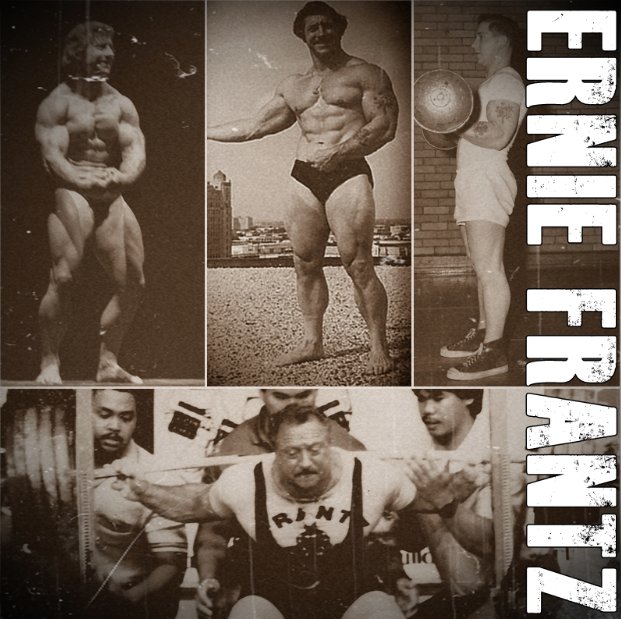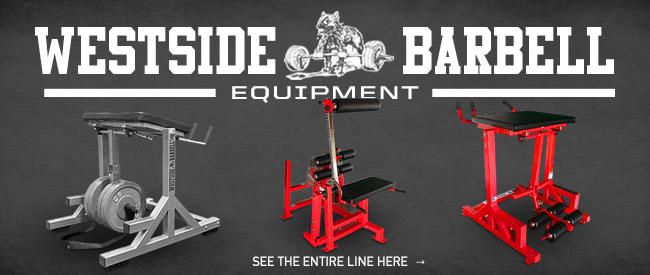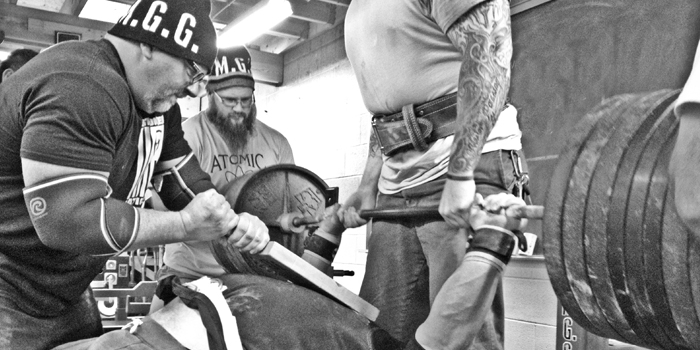
The land of powerlifting is strewn with landmines, and the number of things for novice lifters to avoid is practically endless. There are the obvious things: don’t program hop, don’t sacrifice technique for weight, don’t do a weight cut for a first meet, don’t open with your max weight, and the list goes on and on. However, what we are talking about in this article are the more philosophical things to consider when navigating the world of powerlifting as a newer lifter. Some aspects require deeper thought and reflection and are more nebulous in nature, as powerlifting is far more than its essential sets and reps. As you read, keep in mind that your future in this sport deserves to be worked on not only at the gym and with your physical strength and power, but outside of the weight room as well, with your mental focus and contemplation.
RECENT: Dusting Off the Past to Answer Questions for the Present
Allow me to digress for a moment. Outside of my life in the powerlifting world, my “real world” job is assistant principal. As such, I work closely and on a daily basis with teachers, staff, and other administrators. The high school environment in which I work is one where every four years there is a complete turnover in the young people you are working with. The students come in as 14-year-old freshmen and graduate as 18-year-old seniors. In essence, you have a small and finite window of time and opportunity to work with these young people to help provide them with the tools for future success. As the assistant principal, my work is often with those students who have issues and challenges to overcome in addition to their curricular work. As I work with them, although there are many unique situations and circumstances, there are definitely patterns and mistake-loops you see them fall into, and I along with their deans work to help them get past and grow from mistakes. Additionally, we spend a large amount of time and energy working to make sure that they avoid many familiar mistakes altogether on the front side.
With regard to my life away from the world of education, I have been a powerlifter since my first competition in 1989, as well as a powerlifting gym owner for a good chunk of years. I see many parallels between the two worlds of education and powerlifting. The parallels are strikingly similar in many aspects. As you observe the maturation process during those four years of high school (freshmen evolving into seniors), you likewise see a parallel change-cycle with a new powerlifter during their first four years in the game.
In powerlifting as in education, the names change and the faces too, but the change-cycle is eerily the same, lifter after lifter, generation after generation. In the world of education, trying to avoid the mistakes that can either slow your progress, or worse, derail you entirely, is critical. For the powerlifter, this is also true. Simple mistakes one can typically recover from, and in some cases those mistakes are great learning tools. Bigger mistakes, however, can be the end of what otherwise could have been a great powerlifting career and journey.
That all as context, here are some mistakes outside of the gym to pre-identify and avoid as you begin your powerlifting journey. With that said about a journey, let us begin.
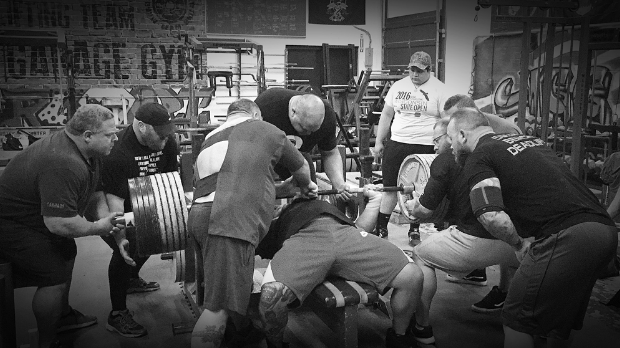
1. It Is a Journey, Not a Destination
Powerlifting is a sport, and no doubt a glorious one at that. But it is so much more than just a sport, and cannot simply be contained by that label alone. To the serious powerlifter, the lifelong powerlifter, powerlifting is a lifestyle. It is a calling, and for many, it is something that we can’t imagine living without. That said, powerlifting is not about a start and an end. It is not about the first barbell you pick up and the last barbell you ever lay down. Powerlifting is about the times between those days. It is and has always been about the journey.
Powerlifting is a metaphor for life. Failure to know, understand, accept, and embrace this ultimate truth is the first mistake you can make even before picking up that first barbell. As I mentioned earlier, from my lens as both a powerlifter and an educator in a high school, the powerlifting journey is not unlike your high school journey. You don’t think back to your days in high school merely as “I got on the bus as a freshman and then I tossed my mortar board in the air at graduation four years later.” Rather, as you reflect back on that time in your life, you get that global perspective and look at the change and growth you went through during that span of some 1,460 days. You grew from the 14-year-old freshman who didn’t even know where the bathrooms were, to the senior who knows every square foot of that high school, knows virtually every student and teacher in that building, and is ready and prepared to leave home for the world of college, military, trade school, or work force. If your high school senior self was approached by your freshman self, the senior version of you would be shocked at how little you knew and how naive you were a mere four years prior.
Likewise in powerlifting, the difference between the first time you walk into a powerlifting gym and your eighth meet as a lifter with four years of training and experience, there is a stark difference. Until you reach that point, one must have faith that powerlifting is not about the destination but the journey. Powerlifting is not all about one meet, one squat, one program, or even one year of training. It is about the journey that, if you do things right, will last you decades. Failure to see the longer-term journey will cause you to make mistakes like putting too much emphasis on one given meet. Seeing powerlifting as a destination is shortsighted, but knowing that one meet builds to the next meet and to the next and to the next, crescendo-ing slowly into a better and more powerful version of yourself, will yield you greater success in the long run.
2. Knowing Why
Keeping in mind the prior concept of the journey, knowing the "why" behind your powerlifting journey is something to think about as you embark on this path. There are many things we do in life, because our life can be among many, many things, a collection of activities. But within those activities, we have major or primary things we do. Our career is one of these things. In your mind’s eye, you can think of people who adore their career. They look forward to getting up each and every morning so they can begin their workday in a career they love. We also know people who live for the weekends, and they do so because they don’t look forward to their career or even dread their job. They are going through the motions, sometimes because they need the money (sometimes you have to do what you have to do) but sometimes simply because they didn’t choose a career and instead just ended up with some job. When applying for a job, the job they now abhor, they never asked the "why" question, so they just ended up in this place.
As a novice to this sport, know why you are powerlifting. If you are powerlifting based merely on the fact that your buddies compete in powerlifting, great. However, if your "why" is to win championships and break records, be aware of what that takes. Being successful in powerlifting with regard to wins, records, and the like takes hard, hard work and sacrifice. It takes knowing the sport, creating a vision, and carrying out that vision to fruition. For those who love powerlifting, they love going to the gym the same as the person who loves their career loves getting to work. If you don’t love powerlifting but are expecting success, powerlifting will merely be another unfulfilling job that you find yourself just going through the motions of. I can tell you from firsthand observations, those in this sport who are competing for their boyfriends, for example, or for other external reasons, powerlifting quickly becomes an undesirable job, a drudgery, and not the fantastic journey it is for those who love of the sport.
Going back to our high school parallels again, it is not unlike the students preparing for life beyond high school. You can end up in an unfulfilling job if your "why" was not part of a clear vision. Or you can find a fulfilling and successful career because you not only knew the "why" but you also took the appropriate steps to attain your goals. Whether you are doing the sport to be an all-time great or doing so because you want to fill out your clothes with some bulk, neither is right or wrong. But be honest about why you are doing this or the outcome of your efforts will never match the work it takes to get the outcome you are striving for.
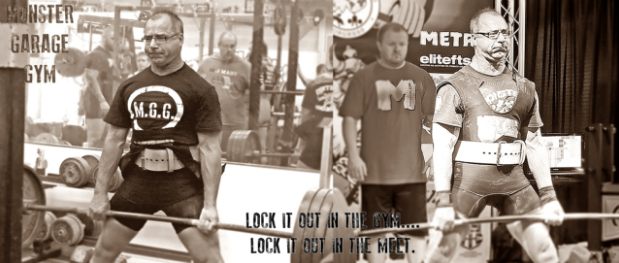
3. Training for Go, Not Merely for Show
If a powerlifter is all about the journey—if the answer to the "why" is for the love of the sport—that lifter will most likely avoid the trap of being about the superficial show rather than the grit and sweat-stained go. Picture in your mind’s eye the great Ed Coan or the legendary Ernie Frantz. (As a novice lifter, you might not know these names, so hit the pause button, do a Google search, and come back to this point in this article.) Think of the decades these two great powerlifters had in the sport of powerlifting. Now think of all of their records and victories. It is truly impressive if you really stop to think about it. Now, ponder this: Each workout for these legendary powerlifters was well-planned, well-executed, and the training was comprised of total concentration, with a work ethic that was second to none. Now string together days of training to comprise one single legendary training week. Compound those weeks into months and those grueling months into a single year. Take that brutal year of training and re-create that over and over and over again to create an unheard of decade of inspired training. Then if you can somehow imagine, take that decade comprised of days upon months upon years and duplicate that for another couple of decades. It is truly mind-boggling.
These training sessions actually happened, one after another, day after day, for years and decades. These powerlifters were about go. They trained not for people to praise them, but because they were about the journey, they knew their "why" was to be the best and strongest and most powerful and victorious version of themselves. We know these sessions happened because the proof is found in their legacy of numbers and championships and longevity. They were about the go, not the show. The trap of the show is what you most likely see on your socia-look-at-me-dia each day. You see lifters not training for the go, for the meet, for the journey, or for the eventual body of work they will have put into their decades on the platform. What instead you see is their social media posts they crave or require (or whatever other needy, low-self esteem term you can conjure up). Their training is about “look-at-me, pay-attention-to-me, notice-me.”
MORE: Observations of Beginner Powerlifting Mistakes
The serious powerlifters throughout the history of the sport trained basically in secrecy. They did not want their competition to know what they were doing, the strength they were gaining, or what meet they were training for. These were lifters on a mission, with a vision in their mind and a plan in hand that they were executing and putting into action every training session. Stop and reflect on the lifters you see posting their every workout. Why do you suppose they feel the need to do so? Truth be told, you don’t have to ponder long nor hard. You know the answer. Those with the numbers win; those without the numbers post. Let's go back to the "why" for a minute. If you are finding yourself compelled to constantly post aspects of your training, stop and ask yourself, “Why is that?” If you are in the sport for the journey, for your own self, for your own personal strength and power development, why the need for affirmation? Avoid the show and live the powerlifting lifestyle for the go.
4. Cliché vs. Hardcore
Common sense says that if someone continues to say things of little or of zero value, eventually no one will listen to them. Likewise, if they have to say it loudly, they probably don’t have much to say, as if they did, they could whisper and others would lower they voices to be able to hear them. That said, there are a lot of folks you will come across in this sport who are constantly telling you how hardcore they are. First of all, if someone has to inform you that they are hardcore, well, that is your first warning sign that they are anything but that. Ask yourself if they are hardcore because they are loud, if they are hardcore because they use shocking and colorful language, or if they are hardcore because they put others down. For those on the true path, the journey of powerlifting, they know that none of these three things matter when it comes to the meet. And like the constant posting of lifts and those who show instead of go, powerlifters that can put up a great total are the ones who are hardcore, because they put in the real training to get there. Those who have to be loud, who need that socia-look-at-me-dia acclaim, and those who find fault in others, are powerlifting’s punchline. They are a dime a dozen, yet they can’t even see it.
Hardcore as a term has become just as cliché as those lifters who say they are “going to war” when they are headed to a meet. I highly doubt someone with a career in the military who spent time in actual combat would equate driving in their air-conditioned SUV to a meet, going one-for-three in the squat, then driving to Subway, eating two foot-long meatball subs, driving back to the meet venue, warming up, benching, settling for an opener, then pulling maybe two-for-three on the deadlift with “going to war.” So be aware that those who are really hardcore won't be heard talking loudly, nor be heard casting aspersions on others. Nor will they have to use colorful language to get their point to be heard.
You won’t hear the pseudo-hardcore talking about these mental aspects of the game either. If they understood them, they wouldn’t have to be loud and boisterous in the first place. Try always to go back to item number one: if you are about the journey—truly about the journey—then you are going to lift others up along the way. True strength and power comes from giving and sharing, not putting down or taking. Give a listen sometime to the GOAT, Ed Coan. Not a bad word spoken about anyone. Leave the negativity and egocentrism to the powerlifting perpetrators and keyboard cowards. Maintain your focus on the journey.
5. Know Your History
It is in our nature to look to the future for the answers, but sometimes the questions have been answered in the past. I have written on this very point recently. Rather than edit down this important information at the risk of making this article too lengthy, I will leave this link below. The article's link contains exactly what I am talking about. If you have read along this far with me and are getting something from this article, come with me a little further and read this article, as there is no future miracle pill nor future answer to age-old questions. Truth be told, these questions have already been answered ad nauseam, people just don’t like the answers. Read that article now and I will meet you back here for the closing of this article.
As I stated at the onset, the reality is that the land of powerlifting is strewn with landmines, and the number of things to avoid for novice lifters is practically endless. There is much more to successful powerlifting than the essential sets and reps. If the sets and reps are the bricks with which you build your strength and power, the mindset and philosophical checklist you use to make sure you are on the right path during this journey is your mortar.
As a novice to the sport of powerlifting, don’t just go through the physical motions. Engage in the larger thought process as well. Look back and reflect on these five points to consider. The cycle of powerlifting is repetitive for those in their first four years. Those with many successful years and decades under the bar witness the new lifters fall into these five pitfalls over and over. Sometimes they are derailed for a time and get back on track, but other times they get caught up in believing they already know everything and stop learning. Like the high school student, you want to not only evolve physically but also mentally during your initial four years in this sport. The mental aspect of this sport is undervalued by most. Don’t make the mistake of chalking 100% of lifting success to the physical or you will be selling yourself short.










